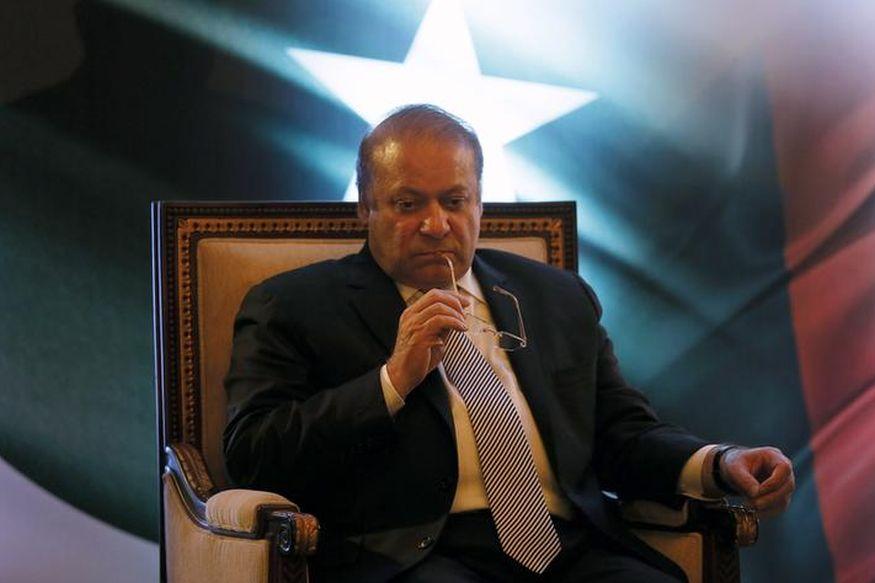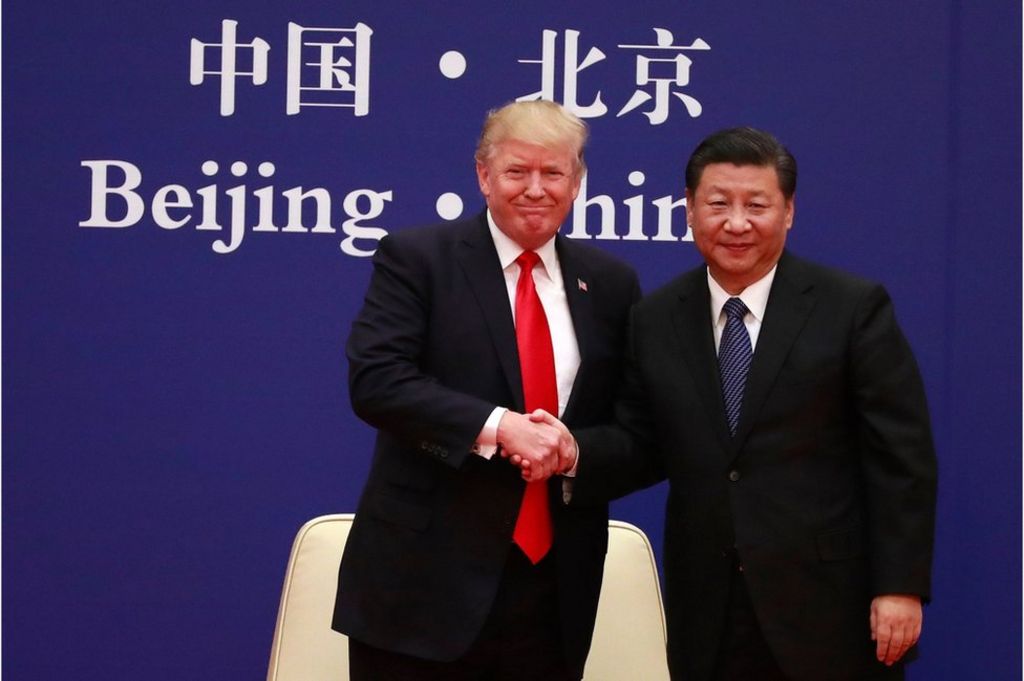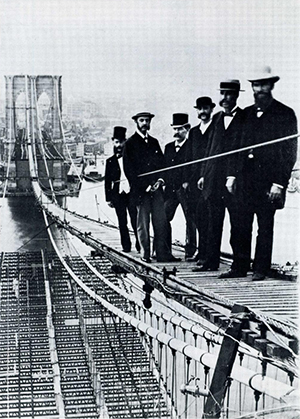India's Economic Isolation Of Pakistan, Turkey, And Azerbaijan

Table of Contents
This article examines India's increasingly assertive economic policies towards Pakistan, Turkey, and Azerbaijan, analyzing the strategic implications of this perceived isolation and its impact on regional trade and geopolitical dynamics. We will delve into the specific economic measures employed by India and explore the consequences for each nation individually, as well as the wider regional landscape. The complex interplay of historical tensions, geopolitical rivalries, and strategic interests shapes India's economic relations with these three nations, creating a dynamic and evolving situation in South Asia and Eurasia.
India-Pakistan Economic Relations: A History of Strained Ties
The economic relationship between India and Pakistan is deeply intertwined with their fraught political history. Decades of conflict and mistrust have severely hampered any meaningful economic cooperation.
The Impact of the Kashmir Conflict
The ongoing Kashmir conflict remains the most significant obstacle to improved India-Pakistan economic relations. The unresolved territorial dispute fuels animosity and distrust, hindering any significant progress in bilateral trade and economic cooperation.
- Reduced cross-border trade: The limited trade that exists is heavily restricted, significantly impacting potential economic growth for both nations.
- Restrictions on visas and movement of goods: The stringent visa requirements and bureaucratic hurdles make cross-border trade extremely difficult and expensive.
- Heightened military spending impacting economic development: Both countries allocate substantial resources to their militaries, diverting funds that could be used for economic development and social programs. This military spending further exacerbates economic hardship and limits opportunities for cooperative ventures.
Sanctions and Trade Embargoes
While not a complete trade embargo, India has imposed various sanctions and restrictions on trade with Pakistan, particularly after major terrorist attacks. These measures significantly impact Pakistani industries dependent on Indian imports or exports.
- Examples of specific sanctions: These include restrictions on specific goods, limitations on the movement of goods across the border, and restrictions on financial transactions.
- Their impact on Pakistani industries: Industries reliant on Indian inputs face significant challenges, leading to job losses and reduced production.
- Retaliatory measures taken by Pakistan: Pakistan has also imposed retaliatory measures, further escalating the economic conflict and diminishing the potential for cooperation.
The Role of Third-Party Actors
The influence of external actors significantly complicates India-Pakistan economic relations.
- The role of China: China's close relationship with Pakistan, including significant investment and infrastructure projects under the China-Pakistan Economic Corridor (CPEC), further strains relations with India.
- The role of the US and other regional players: The US and other regional players often attempt to mediate between India and Pakistan, but their efforts have yielded limited success due to the deep-seated mistrust and conflicting geopolitical interests.
India's Economic Engagement with Turkey: A Complex Relationship
India and Turkey share a complex relationship characterized by a mix of cooperation and competition. While both nations are geographically distant, their interactions are influenced by broader geopolitical dynamics.
Competing Geopolitical Interests
Competing geopolitical interests significantly affect India-Turkey economic relations. Turkey's close ties with Pakistan create a major point of friction for India.
- Turkey's relations with Pakistan: Turkey's strong military and economic cooperation with Pakistan is viewed with suspicion by India.
- India's concerns about Turkish support for Pakistan: India perceives this support as undermining its own strategic interests and regional influence.
Limited Trade and Investment
Despite the potential for increased economic cooperation, trade and investment between India and Turkey remain relatively low.
- Analyze the factors hindering increased economic cooperation: Geographical distance, a lack of significant shared economic interests, and political tensions contribute to this limited engagement. The absence of robust free trade agreements further hinders bilateral economic activity.
The Influence of Regional Alliances
Membership in different regional alliances also plays a role in shaping India-Turkey economic relations.
- How membership in different alliances can impact trade and investment strategies: Turkey's membership in NATO and its relations with other regional organizations can affect its approach to economic partnerships with India. Similarly, India's engagement with regional alliances influences its own priorities in bilateral relations with Turkey.
India's Approach to Azerbaijan: Balancing Geopolitical Considerations
India's relationship with Azerbaijan is characterized by a growing strategic partnership, particularly in the energy sector. However, this relationship is also influenced by the complexities of the Caucasus region.
Energy Security and Strategic Partnerships
India's increasing interest in Azerbaijan's energy resources is a key driver of their bilateral relationship. This collaboration contributes to India's energy diversification strategy.
- Discuss the development of energy partnerships and their contribution to India's energy diversification: India aims to reduce its reliance on traditional energy suppliers through partnerships with Azerbaijan, enhancing its energy security.
Limited Economic Engagement Despite Potential
Despite the potential for broader economic cooperation, the relationship remains limited.
- Identify factors limiting deeper economic ties: Logistical challenges, the presence of established economic relationships between Azerbaijan and other countries, and regional geopolitical complexities act as constraints.
Geopolitical Context in the Caucasus
The geopolitical landscape of the Caucasus region, with the influence of Russia, Iran, and other regional powers, significantly shapes India-Azerbaijan relations.
- Mention the influence of Russia, Iran, and other regional powers on the relationship: The presence of these major players influences the scope and nature of India's economic engagement with Azerbaijan. Navigating this complex geopolitical environment requires careful consideration and strategic maneuvering.
Conclusion
This article has analyzed India's economic policies towards Pakistan, Turkey, and Azerbaijan, highlighting the complex interplay of geopolitical factors, historical tensions, and strategic interests. The analysis reveals a multifaceted picture, where India's engagement varies significantly depending on the specific country and its perceived strategic importance. While economic isolation is a significant element in India's approach to Pakistan, its relationship with Turkey and Azerbaijan presents a more nuanced approach, balancing strategic interests with the realities of limited economic cooperation. The ongoing tensions and shifting geopolitical landscape continue to shape the future of India's economic relations with these nations.
Call to Action: Understanding India's economic engagement with these key players is crucial to grasping the shifting dynamics of South Asia and Eurasia. Further research is needed to comprehensively assess the long-term effects of India's economic policies on regional stability and development. This requires a deeper understanding of India's strategic motivations behind its approach to economic relations with Pakistan, Turkey, and Azerbaijan.

Featured Posts
-
 Carrie Underwood Vs Taylor Swift Unveiling The Truth Behind The Recent Events
May 18, 2025
Carrie Underwood Vs Taylor Swift Unveiling The Truth Behind The Recent Events
May 18, 2025 -
 At And T Sounds Alarm On Broadcoms V Mware Deal 1 050 Price Increase Predicted
May 18, 2025
At And T Sounds Alarm On Broadcoms V Mware Deal 1 050 Price Increase Predicted
May 18, 2025 -
 Cassidy Hutchinson Memoir A Deep Dive Into The January 6th Hearings
May 18, 2025
Cassidy Hutchinson Memoir A Deep Dive Into The January 6th Hearings
May 18, 2025 -
 Trumps Aerospace Deals A Deep Dive Into The Numbers And Missing Details
May 18, 2025
Trumps Aerospace Deals A Deep Dive Into The Numbers And Missing Details
May 18, 2025 -
 Trump Open To China Trip For Xi Jinping Meeting
May 18, 2025
Trump Open To China Trip For Xi Jinping Meeting
May 18, 2025
Latest Posts
-
 Brooklyn Bridge A Critical Analysis Of Its Construction And Durability
May 18, 2025
Brooklyn Bridge A Critical Analysis Of Its Construction And Durability
May 18, 2025 -
 Brooklyn Bridge Review Solid Foundation Room For Improvement
May 18, 2025
Brooklyn Bridge Review Solid Foundation Room For Improvement
May 18, 2025 -
 Brooklyn Bridge Park Shooting Man Found With Head Wound
May 18, 2025
Brooklyn Bridge Park Shooting Man Found With Head Wound
May 18, 2025 -
 Man Found Dead In Brooklyn Bridge Park Gunshot Wound To Head
May 18, 2025
Man Found Dead In Brooklyn Bridge Park Gunshot Wound To Head
May 18, 2025 -
 Remembering Emily Warren Roebling A Pioneer Of Bridge Engineering
May 18, 2025
Remembering Emily Warren Roebling A Pioneer Of Bridge Engineering
May 18, 2025
